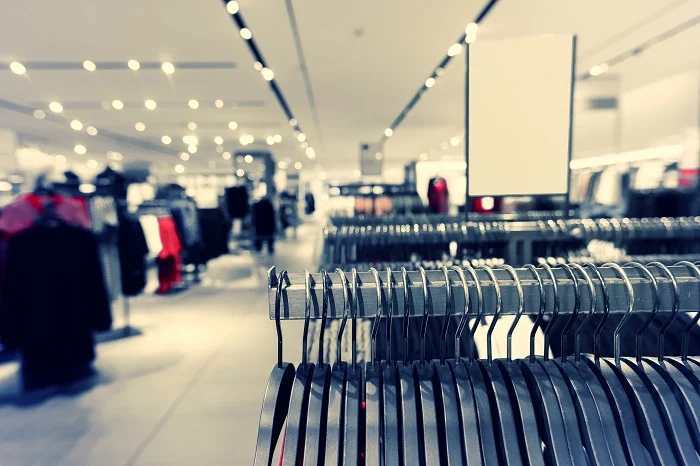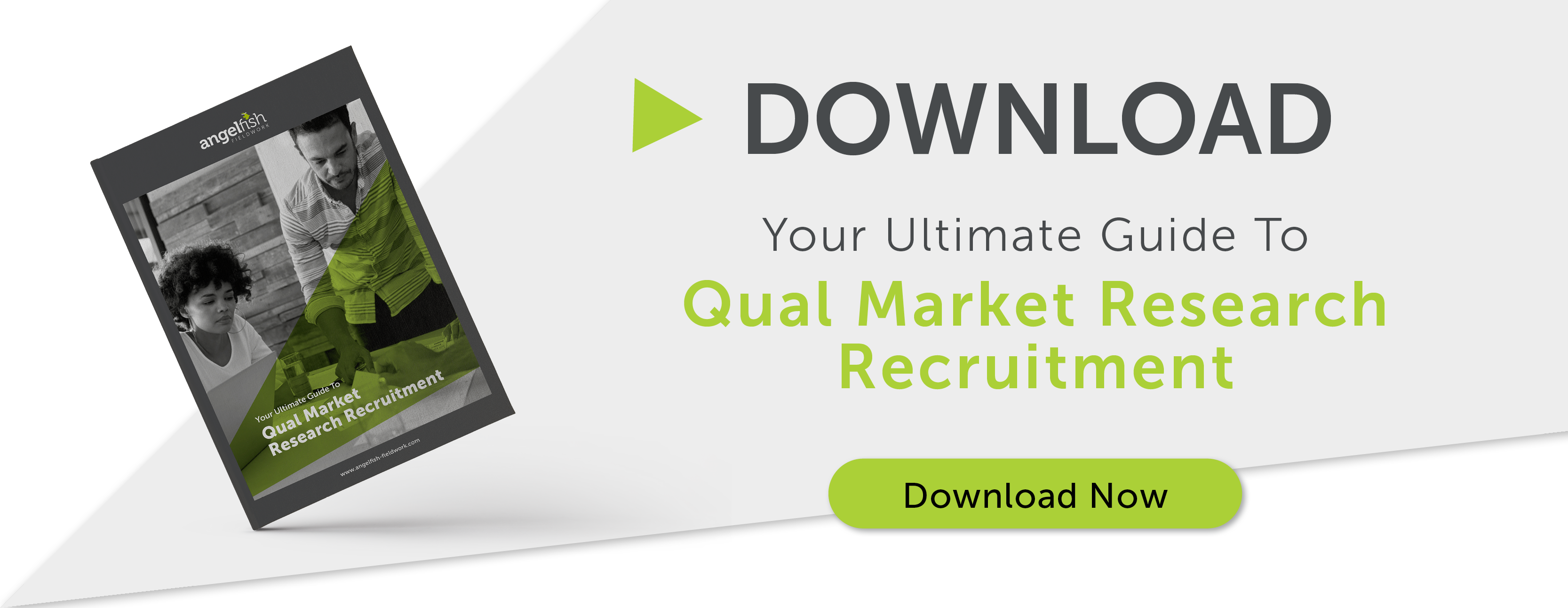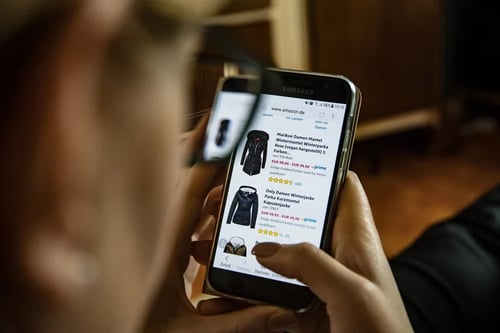
The new normal: the impact on the retail industry & market research
The retail industry has undergone some pretty dramatic transformations over the last decade...
...from digitalisation and the advance of technology to the decline of the high street. However, nothing compares to the impact the coronavirus pandemic has had across the globe.
From financial losses to the rise of e-commerce, although the threat of coronavirus will eventually pass, customer experience and the retail industry will be changed forever. What’s more, if retailers are going to recover, the need for empathy and understanding amongst nervous customers is greater than ever before.
But what does all this mean for retail industry market research? And how can market research help as retailers tentatively navigate the new normal? We investigate in this blog…
What the statistics say
British retail sales fell by 18.1% in April, marking the biggest decline since records began. In fact, a recent study suggests that half of UK retailers could be wiped out if coronavirus continues, with an ONS survey reporting that 27% of retail workers across 6,150 businesses were furloughed.
On a global scale, Europe’s luxury market is expected to suffer an average sales loss of more than 35%, whilst Forrester predicts that the global loss in the retail sector will hit $2.1 trillion.
However, there is some light at the end of the tunnel; according to research we have recently undertaken at Angelfish, 45% of consumers are excited about shops reopening. But as stores up and down the country begin to open their doors, what does the new normal look like and what does it mean for the retail industry?
The new normal and the future of retail
From social distancing to changing shopper attitudes, online shopping to click and collect, things are set to look very different on the high street. Here are just a few ways that things could change in the coming weeks and months:
1. More online shopping
One key thing that we expect to see when the shops reopen their doors is that online shopping will continue to take centre stage.
Even before the pandemic, online shopping was growing in popularity year on year due to ease and convenience - and new data shows that UK online retail sales rose by 22% in the first week of April compared to the same time last year.
Due to consumer nerves, the longer the crisis lasts, the greater the likelihood that online and omnichannel purchasing will become the next normal and remain an essential part of life post lockdown.
A survey conducted in late March found that 90% of shoppers were hesitant to shop in store because of the coronavirus, and in a recent survey we conducted, we found that 61% of consumers are planning to continue with online shopping once stores reopen.
So, what does this mean for market research? Well, for starters, it means that user experience and usability testing will become increasingly important as the shift to digital purchasing continues. With more people shopping online, websites, apps and all online channels need to be easy to use.
And with bigger audiences conducting their shopping online - especially non tech-savvy older generations who are more fearful of visiting physical stores - it’s really important that brands deliver a seamless user experience for all their customers.

2. Improved click and collect
Another way that the Covid-19 pandemic will impact the retail industry is that the click and collect trend will continue to grow. As shoppers seek out convenient and contactless ways to shop, click and collect is entering the centre stage as a super-convenient solution: it’s low-cost, it’s easy, and it resolves any issues around potential contagion.
However, if retailers are going to deliver a click and collect solution that reassures anxious shoppers, the experience needs to be seamless, with limited waiting times and social distancing measures in place. Again, this is where market research comes in.
Concerns about health and safety have never been more important - both for employees and customers - and it’s essential that click and collect offerings reflect this.
Our research found that people are concerned about social distancing not being observed, the length of queues, cleanliness, adequate risk assessments being carried out and possible product contamination (in that order) - so if retailers are going to deliver a solution that works, they need to utilise market research to listen to their customers’ concerns.
What’s more, by conducting customer surveys, retailers can use customer feedback to make improvements and continue to tweak their click and collect service as we all become used to the new normal.
3. The growth of social shopping
We don’t know about you, but we don’t even want to think about the amount of time we have spent on our phones since lockdown began.
Facebook’s Q1 2020 results have shown an increase in its Daily Active Users (DAUs) of 1.7 billion as a result of lockdown - and with people spending more time on their phones, the social shopping trend is set to stay.
In the UK, we check our phones every 12 minutes. And with so many of us spending so much time on social media, it’s no wonder social shopping is growing by the day.
In fact, 28% of online orders now come from social and search sites such as Google, Facebook and Instagram - a number which will continue to rise exponentially in the coming months.
What does this mean for market research? Well, again, user experience and app usability testing are set to be essential to the market researchers’ post-Covid toolkit.
But that’s not all: as more people access the internet via their smartphones, we also expect to see an increased opportunity for mobile market research methods that allow instant, in-depth insights on customer experience.
And with more people active on social media, there’s the chance for retailers to access a bigger target audience than ever before, too. For more information about the benefits of social media in retail industry market research, check out this blog.
4. Technology and contactless shopping
Having been socially distanced for such a long period of time, it’s understandable that consumers will be reluctant to physically interact.
As a result, we expect to see a growing trend of touchless retail, powered by technologies such as cashless payments that can provide a high level of protection. In addition, virtual services will continue to rise, too.
Forward-thinking brands have already taken advantage of the virtual opportunities available, with John Lewis having launched the website hub ‘Your Partners Through It All’, offering a variety of virtual services that aim to transfer their in-store expertise online.
From advice on setting up nurseries and interior design tips (very topical considering a huge 75% of people we surveyed are planning to carry out home improvements in the coming weeks!) to personal styling, John Lewis have identified a successful new way to communicate with their customers during the pandemic and beyond.
The desire for contactless shopping also means that it could (finally!) be augmented reality’s time to shine. In fact, within the next five years, it will most likely become more mainstream to try on clothes virtually with augmented reality. About one-third of shoppers already use AR in stores, and experts predict the market could grow to be worth $130 billion by 2020.
The possibilities of augmented and virtual reality for market research are endless (just check out this piece we wrote way back in 2017) and could pose a useful solution for retail market research post-pandemic, too, with options such as virtual accompanied shops and focus groups providing a safe and efficient market research alternative to face-to-face methods.

5. A change in ethics
Pre-pandemic, 75% of Brits were opting to adopt ethical shopping and healthier eating habits and fast fashion was steadily declining, with 74% of people prepared to pay an extra 5% for their clothes if there was a guarantee that workers were being paid fairly and working in safe conditions.
But with the financial pinch of Covid-19, will customer ethics change?
It is very possible that shoppers will be more value-conscious and discount and value sectors may continue to grow as off-price retailers such as T.K. Maxx, Lidl and Aldi become more popular.
When it comes to sustainable brands and products, strapped consumers may now be even more reluctant to pay a premium for sustainability - and it’s also possible that second-hand shopping will see a decline due to hygiene concerns.
However, on the other hand, shoppers may value sustainability even more because of their pandemic experience. Only time - and market research with a conscious consumer audience - will tell.
Retail market research post lockdown
So, what does all of this mean for research? Well, if retailers are going to get it right, it’s more important than ever to listen to their customers.
Customer experience has been a hot topic for a number of years now, but with everything that’s going on in the world at the moment - not to mention the mixture of feelings people have about lockdown easing up - it’s never been more important for brands to get a fully-rounded understanding of what their customers are really thinking.
If brands are going to reassure their customers, it’s essential that they know their decision-making story from beginning to end. Now more than ever, it’s about understanding what your customers need, discovering what they want and helping them to avoid their fears.
Yep, in the wake of the Covid-19 pandemic, now is the time to listen - which is why market research is absolutely essential.

The importance of market research
If your budget allows, continuing with customer research is the best possible way to tackle the immediate and long-term challenges arising from the Covid-19 crisis.
Your customers are still out there and are likely to return post-lockdown, but their buying criteria may have changed significantly - and you need to be swift to respond to their new wants and needs.
Customer-centric research will enable you to reassess your customers, allowing you to identify your target audience and figure out what they want, why they want it, and how their wants and needs have changed during the crisis.
Customer sentiment will have also changed exponentially in recent weeks and months, so it’s important that you nail your company messaging and marketing, too. By understanding what makes your customer tick, you can reassure your consumers, build empathy, strengthen relationships and deliver a service that delights.
How Angelfish can help
At Angelfish, there’s nothing we don’t know about retail market research recruitment.
You see, using a combination of cleverly targeted social media campaigns, our opt-in panel of over 26,000 respondents and refer-a-friend campaigns, our bespoke recruitment process allows us to find the perfect participants for your retail market research.
What’s more, our in-house validation process means that once we’ve found relevant respondents, we will only put forward the very best participants who exactly match your criteria, so you can uncover the customer insight you need, every time!
Alternatively, if you’ve got a specific list of respondents for us to recruit from, we can advise you on everything from feasibility to response rates to ensure your project is fully recruited and that everything runs smoothly.
And that’s not all. We understand that things are confusing right now, which is why we act as a consultative partner, working with you every step of the way. With Angelfish, you’ll have a dedicated project management team who will be on hand to ensure things run smoothly.
From guidance on sample size and advice on feasibility to our tip incentive tips, we’ll be there for you throughout the duration of your study so you can really get to know what your customers want and why.
See - we told you we were experts in all things retail! If you want to find out more about retail industry market research with Angelfish, download our free guide here.














